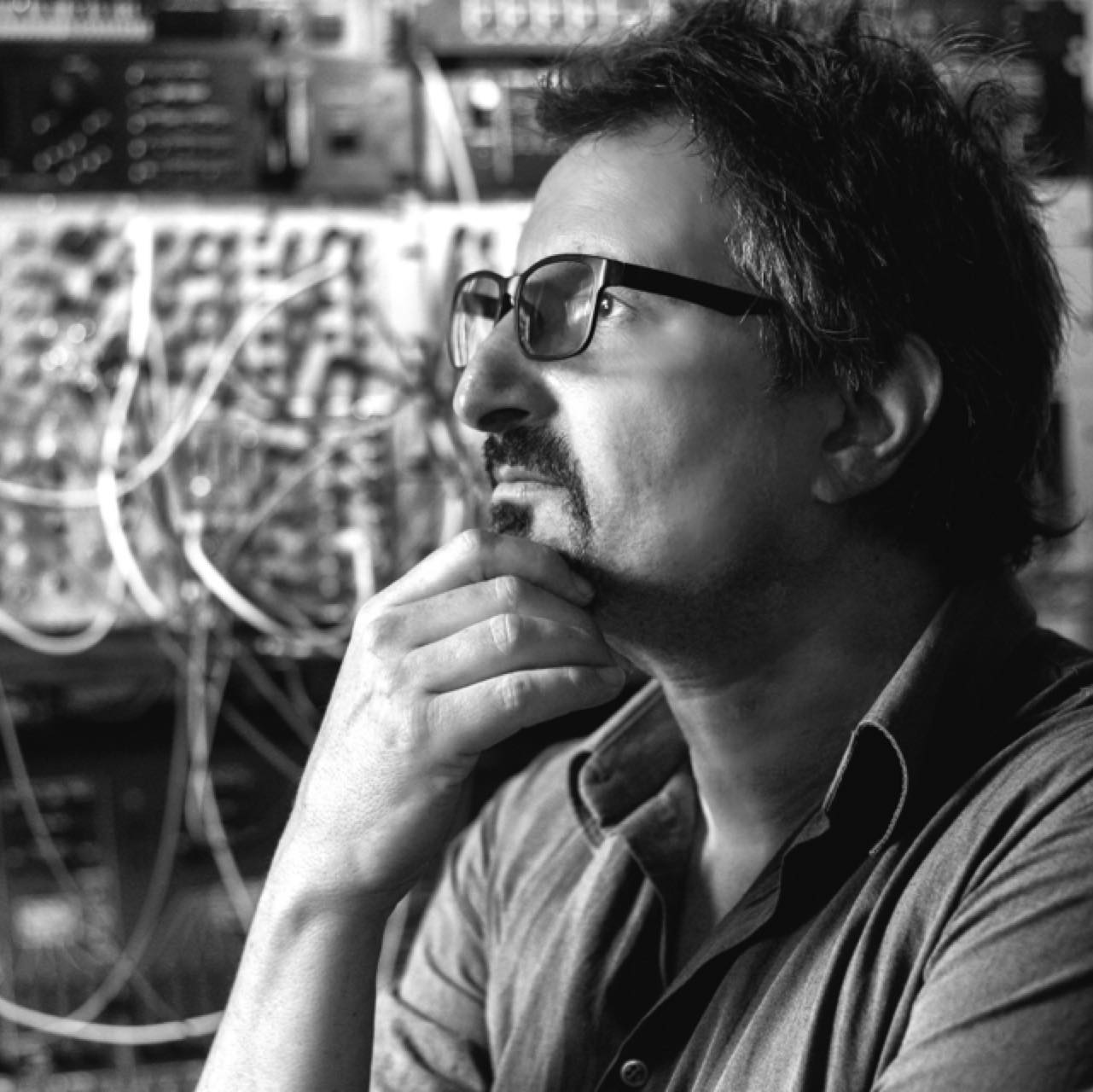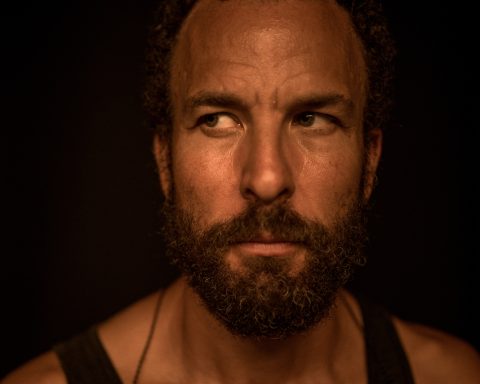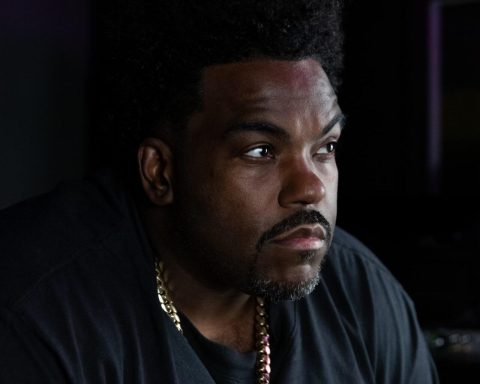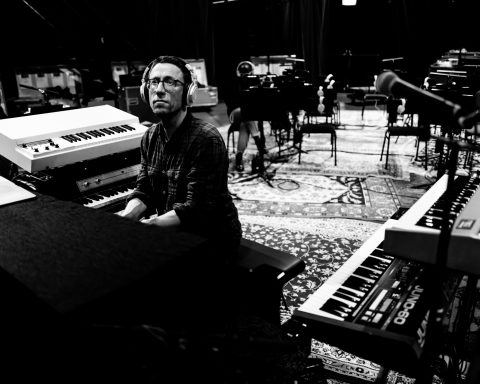Call it kismet, synchronicity, or flow. Composer Jeff Rona has a remarkable career that glides from one opportunity to the next, each subsequent prospect emerging at precisely the right moment. In conversation, his diverse experiences traverse multiple timelines, defying a single lifetime. Like the title character in the Where’s Waldo book series, Rona is omnipresent, somehow just out of view. From the arrival of MIDI, through work alongside Hans Zimmer, Ridley Scott, and Steven Spielberg, to his involvement with franchises like Resident Evil and The Walking Dead, Rona is never far from the action. He reflects on lessons he’s learned scoring films, seminal moments in musical technology, and what makes a powerful cinematic theme.
The Soundtrack of Our Lives
“Growing up, I knew what I loved, but I didn’t know what that meant professionally,” Rona says of his early musical infatuations. “I was into sound and came at it from more of an avant-garde angle, creating weird noises, disassembling radios, and making them squelch.”
A quick scan of his credits is a tour of the last three decades of pop culture, where award winners like The Lion King, The Prince of Egypt, and Black Hawk Down hold court next to popular video games and TV shows. But Rona didn’t start out planning to become a composer.
“I was a woodwind player from the third grade,” he says, speaking from his Los Angeles home studio. “By high school, I started playing with synthesizers, but it wasn’t until college that I had a roommate who was a lover of scores and had a great collection. I was nineteen years old, and it had never occurred to me that there was such a thing as film music.”
Soon arrived the first of many fortuitous opportunities. “I had a friend in college who was an orchestrator for Basil Poledouris—an old guard, amazing composer. At nineteen or twenty, I started doing synth programming.” Rona’s keyboard skills came in handy with the veteran, but his first career twist wasn’t far off. “Then I took a bit of a detour and worked for Roland for four years.”
"I was nineteen years old, and it had never occurred to me that there was such a thing as film music."
MIDI for the Masses
This was a time of rapid growth in the music tech space, and Roland was a hub of activity. “The first two prototype MIDI instruments in the entire country came to my office,” Rona recalls. “I spent the next several years writing the first MIDI code for Roland.”
The job led to him being the Roland representative at a meeting with Bob Moog, Roger Lin, Dave Smith, and a host of luminaries. “I became the main liaison. I started the MIDI Manufacturers Association and was the president for ten years.”
He’s humble about the role he played in the development of MIDI and keen to spotlight the team effort. “I can’t think of a technical standard that has had the same level of impact. And we did it entirely without governmental supervision.” Rona credits the success of the MIDI project to the “maverick approach” of the musical minds involved—a collective understanding of the technology’s implications.
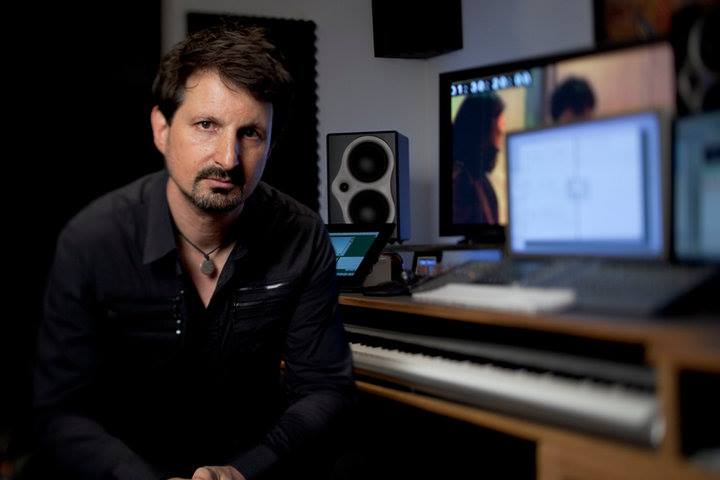
A Melange of Mentors
As if witnessing the advent of MIDI wasn’t thrilling enough, Rona also worked alongside Brian Eno and Philip Glass in his early days. So, when exactly did movies come into the proverbial picture? “After working on records for a number of years, it matriculated that I was working on film and TV.” Before long, Rona had found his niche.
“I was working with well-known and unsung composers who were scared that their careers would tank if they didn’t pivot from orchestral into electronic music,” he explains. “We were already seeing John Carpenter movies, and there was Giorgio Moroder and Vangelis. But it was starting to trickle down into TV and become more part of the everyday.”
"We were already seeing John Carpenter movies, and there was Giorgio Moroder and Vangelis. But it was starting to trickle down into TV and become more part of the everyday."
Cue it Up
The shifting sands of the industry meant Rona got to try his hand at some scoring during breaks from his electronic duties. “Unlike paper and pencil, in electronic music, there’s a blur between creating sounds and composing,” he shares. “That meant I worked with composers who knew I understood music. Even though they’d hired me to help them, they started throwing cues at me, going, ‘Jeff, I’m behind schedule. Could you score this scene?’”
These requests led to a stretch of ghostwriting. “Those were probably the most important, valuable years,” Rona affirms. Being ready, willing, and able meant opportunities began coming his way—along with new demands. “The first time I worked for Ridley Scott was a trial by fire,” Rona remembers. “They fired an Academy Award-winning composer at the last minute. Ridley called Hans, who said, ‘I’m in the middle of a project, but I know a young composer who will nail it and pointed at me.’”
The Pursuit of Clarity
As Rona progressed as a composer, he picked up on-the-job techniques from the directors whose visions he was helping realize. It’s boiled down into something of a philosophy. “Writing a score, you go on various expeditions within the arc of a story. But you have to keep coming back to some central theme,” he explains. “Whether it’s the sound of an electric guitar, an electronic instrument, an orchestra, or a weird, reversed loop doesn’t matter. That’s between you and the filmmakers to decide.”
Whether film, TV, or video games, Rona stresses that he is on a continual search for simplicity. “My career has been a combination of orchestra and heavy electronics, quiet and loud,” he says. “The thing that runs through it all is an ongoing attempt to find clarity. Whatever you do is designed for one purpose, and that is to tell the story.”
"The thing that runs through it all is an ongoing attempt to find clarity. Whatever you do is designed for one purpose, and that is to tell the story."
Choosing the Palette
Still, every musical composition has to begin somewhere, and Rona has a method for traditional scores. “I may start on an acoustic piano or with a simple string patch,” he says. “If you write for orchestra, the palette has been given to you. It’s woodwinds, brass, strings, percussion, and voices.”
When working on an electronic soundtrack, his process differs. “Then, I start with the sound design and use the sounds to inspire the music. Because if it burbles, gurgles, spins, or blasts, you can’t write unless you’re actually writing for that sound.”
Cinematic Sounds
Recently, Rona rekindled his longstanding relationship with Roland. “Starting with hip-hop and the use of 808, moving to house music and the 909, then leading into the synthwave bands, Roland’s legacy is tremendous,” he says. “Young music producers now flock to Roland because of that legacy.”
He designed his JUPITER-8 Cinematic Ambient patch collection with film composers in mind. “When I did the Sound Pack, I thought about how a lot of modern film music has taken on a deep aspect of ambient sound in conjunction with other more traditional elements,” he says. “At the same time, we’re into a new style of ambient classical music perfect for meditation, focus, relaxation, or even homework.”
Rona chose an iconic instrument as his muse. “Building a palette of sounds for the JUPITER-8 was to get into that area where drama meets texture. Everything leans towards something rhythmic and dramatic or ambient and all about color.”
"There's no such thing as non-emotional music. It's not good versus evil. Characters can be complex."
Drama and Joy
Rona sees evoking emotion from his audience as his fundamental role, yet every project has endless nuances, and nothing is ever one-dimensional. “There’s no such thing as non-emotional music. It’s not good versus evil. Characters can be complex.”
Still, despite his willingness to plumb the depths of complicated feelings in his work, Rona’s career journey has been freewheeling, joyful even. “I’ve always known what I love, and I get to do the things that I love,” he says. “Honestly, it all happened through a series of happy accidents.”
